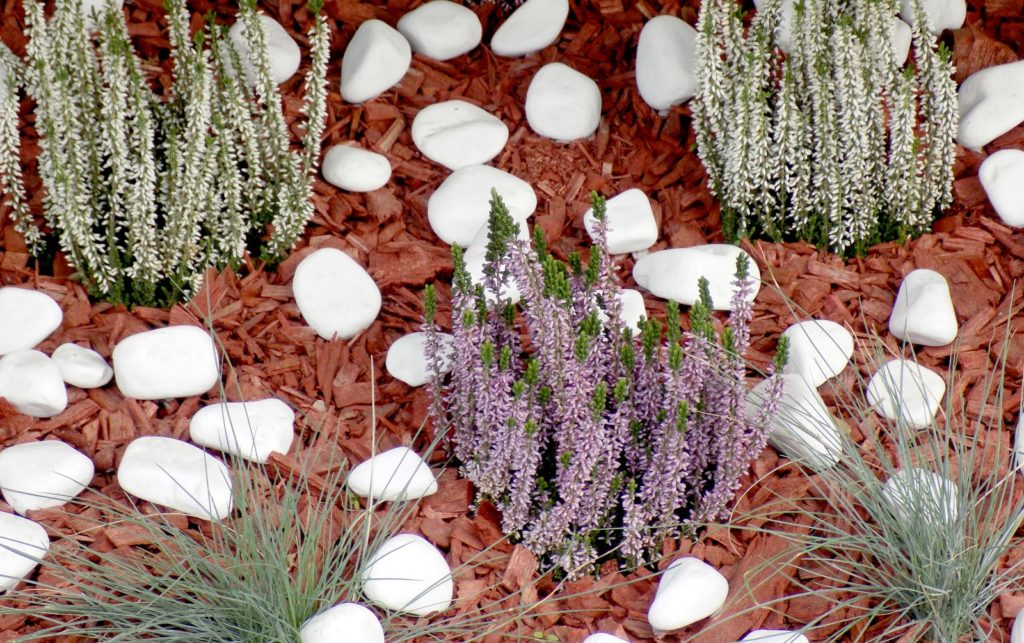
For gardeners far and wide, mulch is the finishing touch that serves both practical and aesthetic purposes. The term refers to any material that is laid over the surface of soil to act as a covering. Its comprehensive benefits are many, and it can be added to your own garden with relative simplicity. If you’re curious about applying mulch and how you can get started, keep on reading below.
What Are The Benefits Of Mulch?
Lower Your Water Bill
Adding an additional protective layer over your soil increases water retention. The University of California Cooperative Extension has noted that mulched soil can retain up to 35% more water than unmulched soil. This lowers the risk of the summer sun drying out your garden too quickly and reduces the frequency of watering you have to do, saving you money on your water bill.
Prevent Overheating
This is particularly relevant for those of you who have recently planted seedlings in your garden that are sensitive to the sun. Depending on where you live, the summer sun puts your garden at risk of overheating, which can damage or even kill plants. Mulch acts as a physical barrier between the soil and the sun’s rays, which helps to keep soil cool even on the hottest summer days.
Suppress Weeds
Weeds are notorious for overpopulating gardens and competing with your plants for nutrients. So how exactly can mulch suppress weeds, you ask? Because mulch blocks sunlight from reaching the soil, fewer weeds can spring up. For the few weeds that do pop up, you’ll have an easier time removing them, saving you time and effort.
Improve Soil Health
Adding a layer of organic mulch, like shredded leaves or grass, to your garden means more nutrients for your soil. When the mulch decomposes, it acts as a natural fertilizer. Organic matter will be added, making your garden healthier and more resistant to pests and disease. This, in the long run, can save you money on fertilizers and pest control.
Polish Your Garden
Mulch can create a neat and tidy in your garden, particularly when the color of the mulch contrasts against your garden. Think, for example, brown wood chips between a vibrant flower bed and a green lawn.
I’m interested in adding mulch to my garden. How can I get started?
Organic Mulch
The first thing you want to do is decide whether you want organic mulch or inorganic mulch. We’ve highlighted the benefits of organic mulch, but we must gently remind you that the ongoing decomposition of organic mulch means that it must be replaced often.
Inorganic Mulch
On the other hand, inorganic mulch, such as stone or gravel, provides nearly all the same benefits as organic mulch, minus the nutrient-rich benefits of using leaves or grass.
The promising benefit, however, is that inorganic mulch requires little to no maintenance or replacement. Stone mulch, in particular, does not decompose and will last for decades. If you live in an area with frequent rain, it has the added benefit of not dirtying the sidewalk, the pool, or other parts of your property after it rains. Furthermore, stone mulch comes in a variety of sizes, shapes, and color blends to match your home and landscape design.
Yet, while applying organic mulch can often be done without outside help, stone mulch will require the labor assistance of an experienced landscaping team, such as Giovine’s Landscaping, for a clean and flawless finish.